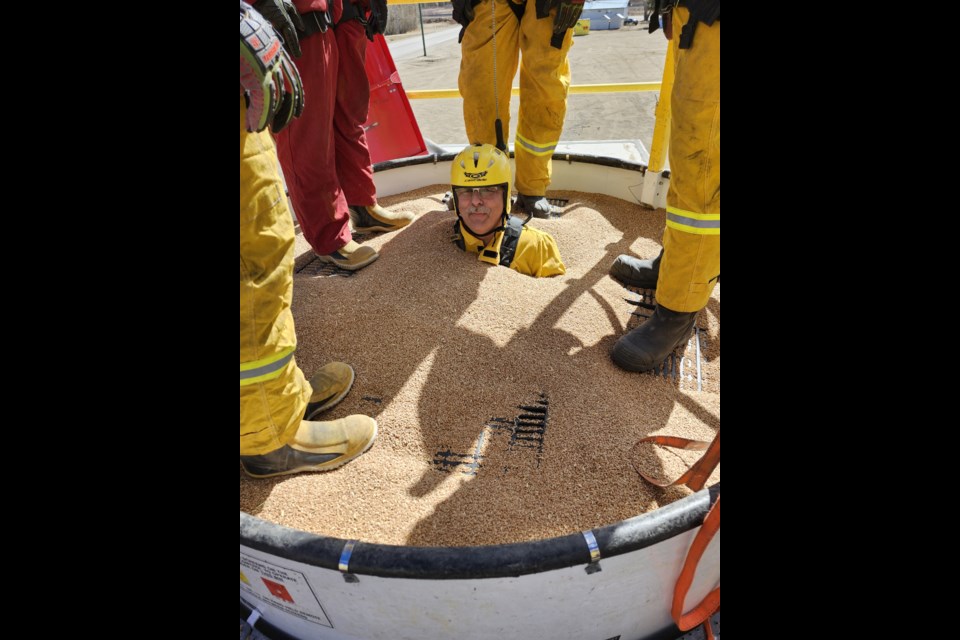MACKLIN — It is nearly impossible to describe the feeling you get when you are standing in a grain bin of wheat and the bottom door is opened. It takes a split second to realize you are starting to sink and within moments, you are down past your knees. If someone doesn’t stop that grain flow within seconds, you will be buried up to your waist or higher.
At this point, it is extremely unlikely that you will be able to free yourself. The more you move the more the grain packs in around you. You will need help. The grain flow needs to be stopped within five to 10 seconds before you will be completely submerged, and your chance of survival basically disappears. That is right. Five to 10 seconds.
Times will vary somewhat based on grain type, bin size and the type and size of the auger being used to move the material but it happens quickly. I have been lucky enough to have taken several courses over the past 25 years but none of them made as much of an impact on me as a recent session in Macklin.
The Grain Rescue Awareness Course for Firefighters provided training to 16 members of Macklin and District Fire Rescue and four members of the Provost Fire Department April 13. The Canadian Agricultural Safety Association (CASA) has built a special training trailer that travels from British Columbia to Ontario. All 20 members took turns getting sunk into the grain and the rest of us practised using the equipment designed to do this type of rescue.
If you have read some of my previous reports, you will know that there was a successful rescue performed not too far from us. Dan, our trainer was the same man who trained these other departments, so he made the training realistic. Each session started with a member standing on the grain and when the door on the bottom was opened, they were pulled down into the grain. For training safety, everyone in the bin was tethered to safety harnesses.
We took four five-foot curved pieces of metal and pushed them down around the “victim,” essentially building a tube around them called a cofferdam. A small drill-powered auger was then used to lower the grain level within the cofferdam. We could keep pushing the dam down and auguring out grain until the members could free themselves. There are ladders built around the inside of the cofferdam and that helps the person climb out. The grain level was lowered just about down to my knees before I could free myself.
It is an incredible experience to feel trapped and know that at this point you are relying on someone else to help you get out. As someone who grew up on a farm, this course was eye-opening.
The biggest takeaways from the day of training were:
Never enter a grain bin or grain truck when there is grain moving in that space. Never enter a bin without having someone else outside the bin who can monitor your safety. Never stand on top of bridged grain as it could be hollow underneath.
Never enter a bin that has heated grain in if the grain is bridged up on one side. The bin could collapse because of uneven load pressures on the wall, or the wall of grain could break loose and cover you within seconds.
Never let children play in bins or trucks with grain in. Most of these types of accident happen during the busy seasons on the farm when people are in a hurry and not thinking through what they are doing.
Training days like this are valuable and this one made a huge impact on me. A course like this and the equipment used to do these types of rescues do not come without a cost. The course with the trainer and trailer for a day was $2,500 and the equipment we used starts at around $5,000 but can go a lot higher with safety harnesses, winches and other equipment. We have had generous donations and are in the process of ordering the cofferdam and mini auger.
If you or anyone you know would be interested in offering financial support, please feel free to contact me or any member of our department.
We had our first big grass fire of the season and neighbouring departments have responded to several already. Please refrain from burning anything until we get a big rain and the conditions start to green up.




